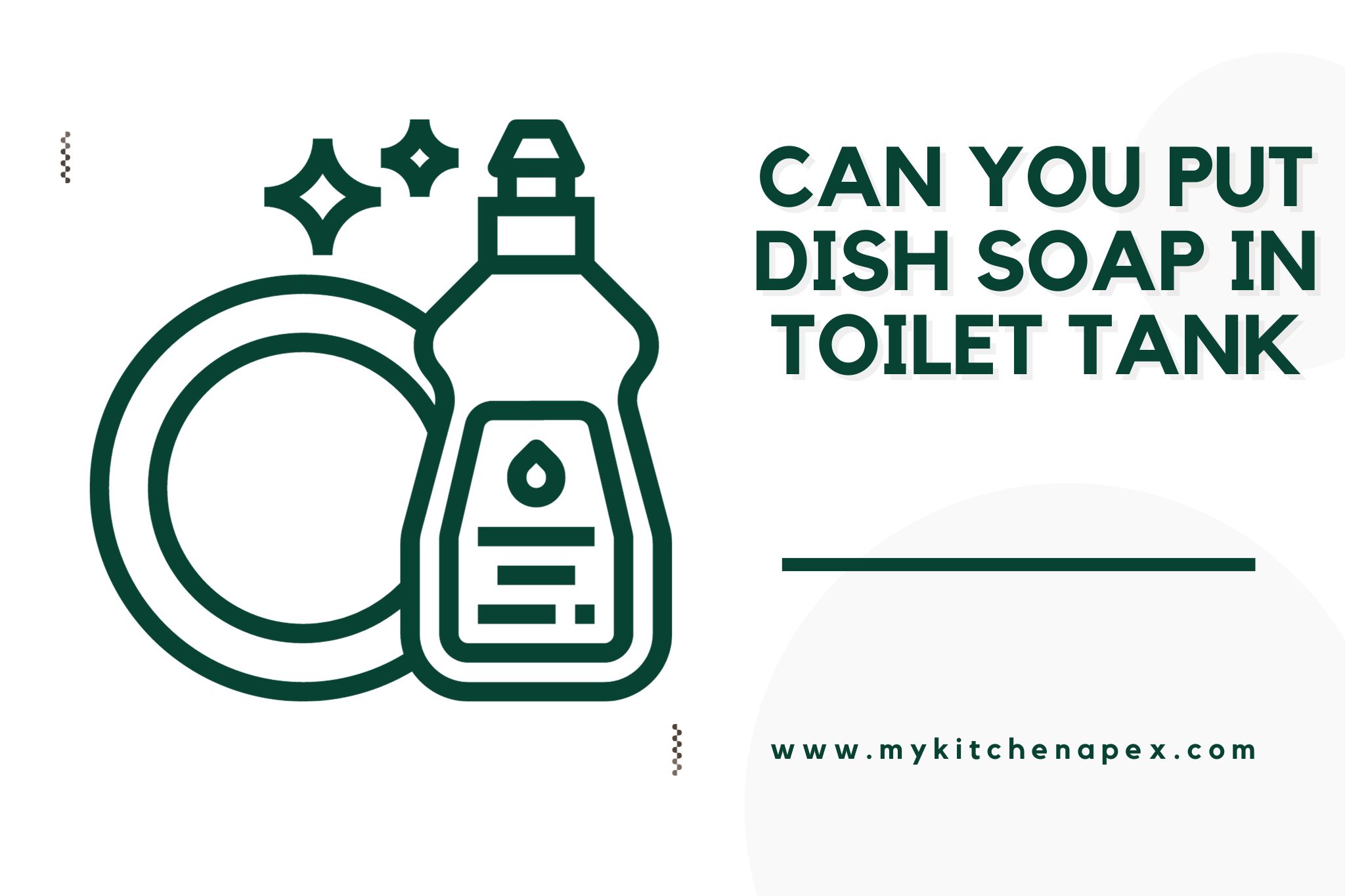Originally Created on: January 21, 2024 @ 7:13 am
Are you tired of dealing with stubborn stains and odors in your toilet tank? Wondering if there’s a simple solution that doesn’t involve expensive cleaners or professional help? Look no further! In this blog post, we’ll explore the question on everyone’s mind: can you put dish soap in the toilet tank?
When it comes to household cleaning hacks, people are always searching for quick and cost-effective solutions. And when faced with a dirty toilet tank, it’s only natural to wonder if something as common as dish soap could do the trick. But before we reveal the answer, let’s dive deeper into why this idea has gained popularity and whether it actually works.
Table of Content
Highlights:
- Dish soap is not recommended for use in toilet tanks as it can cause damage to the plumbing system.
- Toilet-specific cleaners are formulated to effectively clean and maintain toilets without harming the plumbing system.
- While dish soap may be effective in breaking up minor clogs, it should be used with caution and professional help should be sought for more severe blockages.
can you put dish soap in toilet tank
No, you should not put dish soap in your toilet tank. Dish soap is designed for cleaning dishes and does not have the necessary properties to effectively clean or maintain a toilet tank. Additionally, using dish soap in your toilet tank can cause damage to the plumbing system and potentially lead to costly repairs. It’s best to use products specifically designed for cleaning toilets, such as toilet bowl cleaners or bleach tablets, which are formulated to remove stains and kill bacteria without causing harm to your plumbing system.
You May Also Like: does dish soap freeze
Is it safe to put dish soap in toilet tank?
While it may seem like a convenient solution, putting dish soap in your toilet tank is not recommended. Dish soap is designed to break down grease and grime on dishes, but it can have adverse effects when introduced into the toilet tank. The soap can create excessive suds and foam, leading to overflow issues and potential damage to the plumbing system.
Additionally, dish soap may not effectively clean the toilet bowl or remove stains as intended. Toilet-specific cleaners are formulated with ingredients that target bacteria and mineral deposits commonly found in toilets. Using these products will ensure a thorough cleaning while maintaining the integrity of your plumbing system.
To keep your toilet clean and functioning properly, it’s best to use products specifically designed for toilet maintenance. These products are formulated to tackle tough stains, eliminate odors, and prevent clogs without causing any harm to your plumbing system.
Effects of putting dish soap in toilet tank
If you’ve ever wondered about the effects of putting dish soap in your toilet tank, we’re here to shed some light on the matter. While it may seem like an unconventional idea, there are a few potential benefits to consider. First and foremost, dish soap can help break down any grime or buildup that may be lurking in your toilet tank. This can lead to improved flushing performance and a cleaner overall system. Additionally, some people believe that adding dish soap can help reduce odors in the bathroom.
However, it’s important to note that using dish soap in your toilet tank is not without its risks. The ingredients in dish soap are designed for cleaning dishes and may not be suitable for use in plumbing systems. Using too much dish soap or using certain types of soaps could potentially damage your toilet’s components or cause clogs. It’s always best to consult with a professional plumber before attempting any DIY solutions.
In conclusion, while there may be some potential benefits to adding dish soap to your toilet tank, it’s important to proceed with caution. Consulting with a professional plumber is recommended before trying any DIY solutions.
Also Read: does dish soap remove hair dye
Can dish soap help unclog your toilet?
While dish soap may not be the first thing that comes to mind when you think of unclogging a toilet, it can actually be quite effective in certain situations. The slippery and soapy nature of dish soap can help lubricate the clog, making it easier to flush away. To use dish soap for this purpose, simply pour about half a cup of liquid dish soap into the toilet bowl and let it sit for a few minutes. Then, carefully pour hot water into the bowl and wait for another few minutes before attempting to flush. In many cases, this method can help break up minor clogs and restore normal flushing.
However, it’s important to note that dish soap is not a guaranteed solution for all types of toilet clogs. If you have a more serious or stubborn blockage, it’s best to consult a professional plumber who has the expertise and tools necessary to handle such issues effectively. Additionally, using excessive amounts of dish soap or combining it with other chemicals can potentially damage your plumbing system or cause further complications. So while dish soap can be helpful in some instances, exercise caution and consider seeking professional assistance if needed.
In conclusion, while using dish soap as a DIY solution for unclogging toilets may seem unconventional at first glance, its lubricating properties can indeed assist in breaking up minor clogs. However, keep in mind that this method may not work for all types of blockages and should be used with caution. When dealing with more severe or persistent clogs, it’s always advisable to seek professional help from a qualified plumber who can provide expert guidance and resolve the issue safely and effectively.
Also Read: can you boil dawn dish soap
Final Thoughts
In conclusion, while using dish soap in the toilet tank may seem like a convenient solution for cleaning or unclogging, it is not recommended. Dish soap is not designed for this purpose and can potentially cause damage to your plumbing system. It’s best to use products specifically formulated for toilet maintenance to ensure effective cleaning without risking costly repairs. Consult with a professional plumber if you have persistent issues or need expert guidance.

